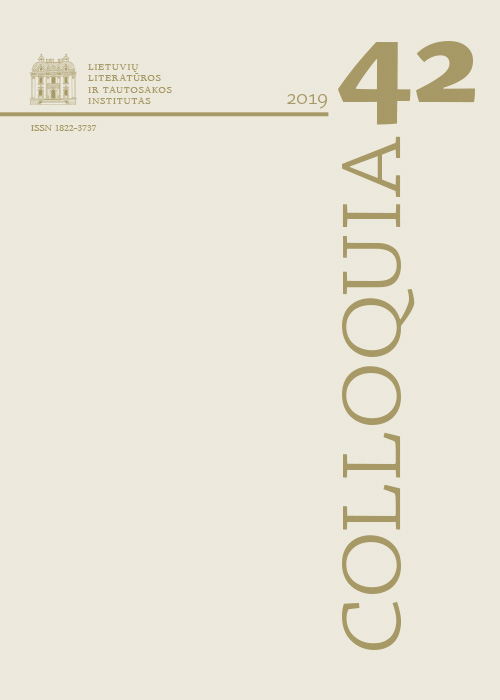Greimas‘s Three Aesthetics
Abstract
The paper examines Algirdas Julien Greimas’s criticism on literature and arts and demonstrates that it is guided by three relatively independent theoretical perspectives. Greimas’s vision of the development of the Lithuanian novel implies a sociocultural literary theory, which expands on the premise that in its narrative forms, literature registers society’s sociocultural structure and simultaneously offers to its readers ways of self-perception. Hence the novel, according to Greimas, must capture the tensions of an individual’s self-positioning in his sociocultural milieu. The history of the plastic and fine arts inspired Greimas to look into the other dimension of art, namely the autonomy of artistic expression, defined as an internal cohesion of expressive forms that primarily communicate the manifestations of natural existence understandable across cultures. Yet it is poetry that Greimas considers the most affective art. He describes it as a discourse of individual self-experience and truth-telling in a singular language that supports the inner cohesion of the poet’s vision of the world and hence enables the constitution of sense in the act of reading. Greimas finds these effects realised most powerfully by three Lithuanian poets: Algimantas Mackus, Tomas Venclova, and Henrikas Radauskas.
Downloads
Most read articles in this journal
- Jūratė Levina, Algirdas Julius Greimas’s Unpublished Reviews about Lithuanian Literary History , Colloquia: Vol. 39 (2017)




